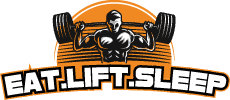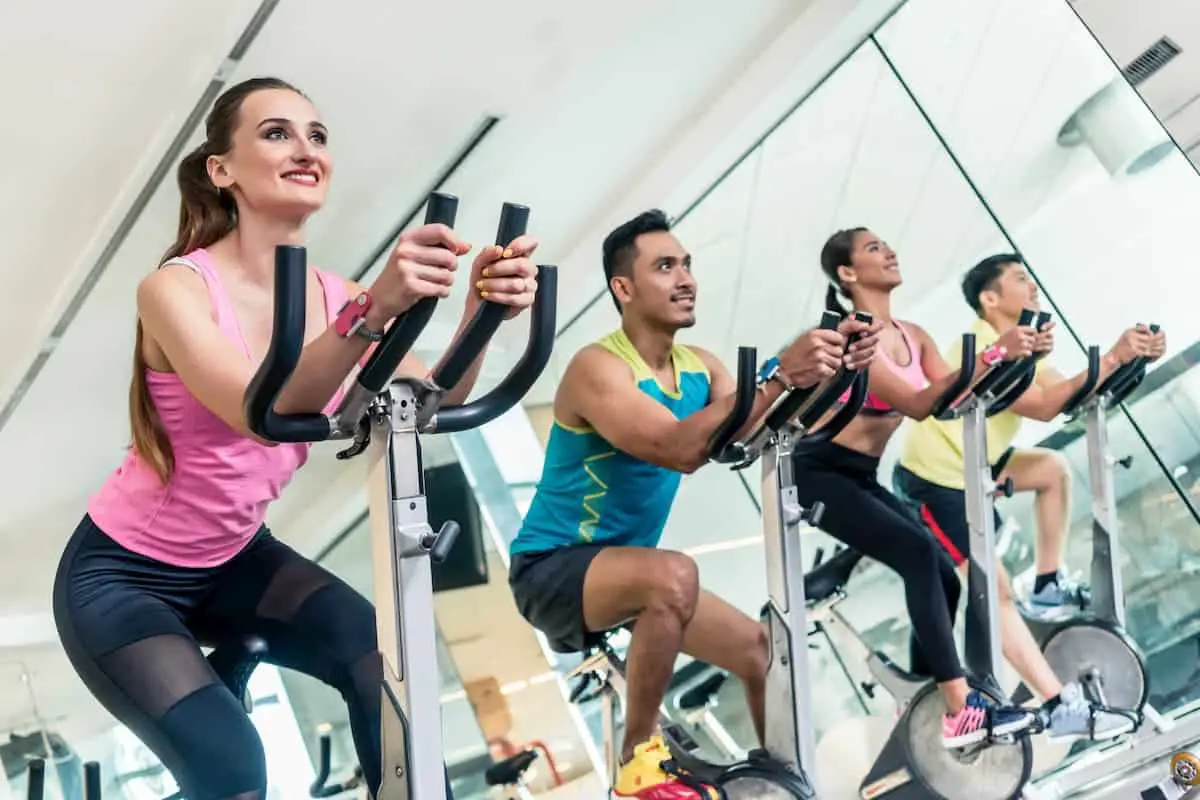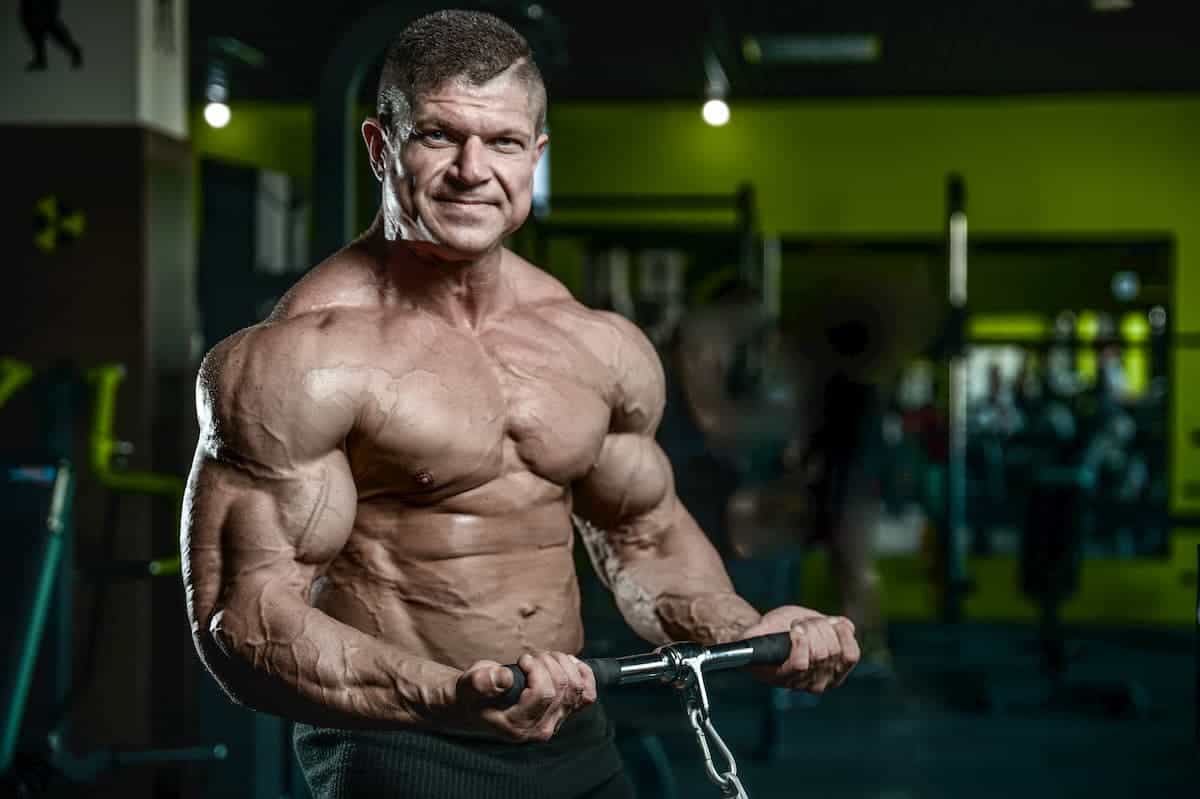After a great workout, there’s nothing better than that post-gym feeling. That sense of accomplishment and pride you get from pushing yourself is gratifying! However, for many of us, hunger cravings can quickly replace that feeling.
The truth is, it’s easy to fall into the trap of giving in to our cravings after a workout. Even if we start off with good intentions and eat something healthy like an apple or some vegetables… chances are we will want more after a short while!
If you’re looking for ways to satisfy your hunger cravings without going overboard on unhealthy snacks – look no further.
Today, I’ll share my top tips on how to crush those pesky hunger cravings after exercise – so you can stay focused on your health and fitness goals without any guilt or added stress!
What Causes Hunger Cravings After Exercise?
Have you ever noticed yourself getting particularly hungry after a workout? You’re not alone! Many people find that their appetite increases significantly after exercise, and it can be hard to resist the urge to snack. But why does this happen? Let’s take a look at some of the most likely reasons for hunger cravings after working out.
Low Blood Sugar: When we exercise, our body uses energy stored in our muscles in the form of glycogen. This process lowers our blood sugar levels and can lead us to experience hunger when those levels are low.
Hormones: Exercise also triggers the release of hormones like cortisol and ghrelin which play an important role in regulating appetite. Cortisol is released during times of stress (including physical activity) while ghrelin directly activates hunger signals within our brain leading us to feel hungrier than normal even if we have eaten enough calories throughout the day.
Dehydration: A lack of fluids can make us feel hungry, so dehydration is often linked with increased hunger cravings after exercise despite having consumed adequate calories throughout the day. This is especially true for activities such as running or cycling which tend to cause more sweat loss than weight training or yoga-based workouts.
Stress: Finally, intense workouts increase stress on both your body and mind causing fatigue and ultimately increasing your appetite as your body wants more energy to keep going throughout the day!
It’s important to note that people already under stress due to other causes may experience an even greater desire for food following a workout session due to these elevated hormone levels associated with physical activity.
Low Blood Sugar
After an intense workout, you may find yourself feeling hungrier than usual. This is often due to your blood sugar levels dropping as a result of burning calories during exercise. When this happens, your body needs energy to replenish the lost calories and refuel its muscles.
People who don’t eat enough protein or carbohydrates before workouts are more likely to experience hunger cravings afterward.
Drinking plenty of water throughout your workout is also important to help keep your blood sugar levels stable and reduce post-workout hunger cravings.
Eating healthy snacks after exercising can also help increase energy levels and address hunger pangs that might occur later on in the day.
Studies have shown that women who eat something within 30 minutes after their workouts tend to be less hungry throughout the day compared to those who don’t eat anything immediately afterwards.
Hormones
After a workout, you might get hungry because of an increase in certain hormones. Ghrelin is the hormone responsible for stimulating hunger and appetite, while leptin helps to regulate energy balance and suppress hunger.
When you exercise intensely, your body produces more ghrelin which can lead to increased hunger cravings.
Studies have also shown that women often experience higher levels of ghrelin than men, which could explain why they may be hungrier after a workout than their male counterparts.
Not neglecting your post-workout nutrition needs; getting enough protein and carbohydrates will help replenish energy stores and fuel muscle recovery throughout the day.
Dehydration
The feeling of hunger after a workout may be your body’s way of telling you to rehydrate. Studies have shown that dehydration can cause an increase in appetite, cravings, and stronger feelings of hunger.
Exercise can also lead to the loss of electrolytes such as sodium, magnesium and potassium which need to be replenished for optimum energy levels.
It’s important to drink enough water throughout your workouts and afterwards to avoid dehydration-induced cravings.
Eating something healthy with protein after exercising can also help satisfy any post-workout hunger you might feel, since protein helps regulate blood sugar levels and satiate your appetite for longer periods than carbohydrates or sugars alone.
Stress
It’s no secret that stress can have a huge impact on your hunger levels. When you become stressed, the body releases hormones such as cortisol and adrenaline that can increase your appetite and make you feel hungrier than usual.
Stress is also linked to an increase in cravings for unhealthy foods, which may lead to overeating or consuming more calories than you need.
To help combat this issue, it’s important to take time out of your day to relax and practice healthy stress-management techniques such as deep breathing or meditation.
Additionally, getting enough sleep is essential for managing hunger levels throughout the day as well as after workouts.
Research shows that people who are sleep deprived tend to be hungrier overall and are more likely to crave unhealthy snacks when they’re tired.
How To Reduce Hunger Cravings After Exercise
When it comes to reducing hunger cravings after exercise, the key is to replenish your body with enough calories, protein, and hydration.
Eating a balanced meal before working out can help fuel your body throughout the activity and prevent hunger cravings afterward.
It’s also important to drink plenty of water while exercising as dehydration can increase appetite. Consuming carbohydrates post-workout can also help you restore your energy levels and reduce hunger.
People often turn to unhealthy snacks right after their workouts, but it’s best to choose healthy foods such as fruits or whole-grain toast as these provide essential nutrients that will keep you feeling full for longer.
Weight training is especially likely to cause hunger cravings because muscles need additional nutrition following intense activity like this.
Studies have shown that muscle recovery might be affected if you don’t replenish muscle glycogen stores within 30 minutes of finishing an intense workout.
Women have been found to have higher energy intake needs than men throughout their workouts due to a greater drop in blood sugar levels.
Therefore, it’s very important for women who are exercising regularly or intensely enough that they experience hunger cravings afterwards make sure that they are eating something every few hours while they’re working out in order to give their bodies the energy it needs.
At the end of the day, getting adequate sleep is another way that people can curb their post-workout appetite and supplement their calorie intake needs without having anything extra on top of their regular meals.
So it’s always important not only how much calories we consume during our workouts but also enough good quality rest time!
Eat a Balanced Meal Before Exercise
Proper nutrition is essential for all forms of exercise, but it is especially important when it comes to working out.
Eating a balanced meal before your workout can help ensure that you have enough energy and the right nutrients to power through your routine.
Additionally, eating a healthy meal before training can reduce hunger cravings after exercise by helping to stabilize blood sugar levels and providing other important nutrients.
Studies have shown that eating something with both protein and carbohydrates prior to activity helps maintain energy levels throughout the workout and reduces hunger afterward.
For example, whole grain toast with peanut butter or an egg-based breakfast are good choices for pre-workout meals since they provide both carbs for energy and protein for muscle repair.
It’s also important to remember that different types of workouts require different amounts of fuel — more intense activities will likely result in hungrier feelings post-workout than lighter workouts.
Ensure you’re consuming enough calories throughout the day so you don’t feel overly hungry after a workout session.
In addition to eating a balanced meal before exercising, make sure you’re drinking plenty of water as well; dehydration could be one of the reasons why people often experience increased appetite shortly after working out, so staying hydrated is key!
Drink Plenty of Water
It’s no secret that water is essential for our bodies to function properly, but did you know it can help reduce hunger cravings after exercise? Studies have shown that drinking enough water during and after workouts can decrease appetite and food intake.
Drinking water before exercising may also help to increase energy levels so you feel more energized during your workout and don’t experience hunger as soon as you finish.
Moreover, drinking enough water throughout the day helps to keep us hydrated, which has been linked to reduced calorie intake and improved health outcomes.
It’s important to note that dehydration can often be mistaken for hunger, so ensure you get enough fluids daily!
Additionally, some studies suggest that drinking cold water may help suppress the appetite even more than warm or room temperature beverages.
People who exercise intensely might need even more hydration than those with less intense workouts. When engaging in high-intensity activities like HIIT or weight training, aim for up to one liter of fluid per hour of activity – this will ensure your body stays well-hydrated and replenished with electrolytes throughout your session.
With all these benefits in mind, it’s clear why staying hydrated is key when trying to minimize post-workout cravings! Make sure you drink plenty of fluids before, during and after working out; this will not only help reduce hunger pangs afterward but also maximize the effectiveness of your training sessions.
Consume Carbohydrates After Workout
When you’re done with your workout, it’s important to replenish the energy you burned by eating something with carbohydrates.
Low blood sugar levels can cause hunger cravings after exercise, and carbs are an easy way to increase your blood sugar quickly.
In addition, they provide fuel for muscle recovery which helps reduce fatigue and soreness post-workout.
Studies have consistently shown that people who consume carbohydrates within 30 minutes of completing their workouts have a greater feeling of satiety than those who don’t eat anything at all.
It is also recommended that protein intake be increased in the hours after exercising, as protein has been proven to help build muscles and improve physical performance during intense workouts.
Eating a balanced meal with carbs and proteins will ensure that your body gets enough nutrition after exercise and prevents hunger cravings later in the day.
However, if you don’t have time for a full meal or need something quick before moving onto your next activity, there are several healthy snacks that can do the trick!
Snacking throughout any activities such as studying or working often increases our appetite so it’s important to make sure you’re choosing snacks wisely.
Fruits such as apples or bananas are nutrient-dense foods packed with natural sugars while peanut butter toast or yogurt can provide a powerful punch of energy-providing carbs along with some protein to help satisfy hunger cravings after exercise longer than sugary treats might.
By making sure we drink plenty of water throughout our training sessions but also post-exercise, consider incorporating adequate amounts of carbohydrates into our meals/snacks pre & post-workout; avoid snacking too much when not exercising; managing stress levels; getting enough sleep; actively tracking our caloric intake – we can easily manage those hunger pangs from resurfacing!
Choose Healthy Snacks
When it comes to post-workout hunger, the right snack can make a huge difference. It’s important to choose snacks that will replenish your energy levels, provide nutrition for muscle repair and growth, and help maintain blood sugar levels throughout the day.
A recent study found that women who ate something within 30 minutes of working out had higher energy levels and reported feeling less hungry overall than those who didn’t eat anything after exercising.
Protein-rich foods such as nuts, Greek yogurt, or hardboiled eggs are great choices because they increase satiety while providing the essential amino acids necessary for muscle repair and growth.
Carbohydrates such as whole wheat toast or oatmeal also offer an easy way to quickly increase your body’s glycogen stores so you can exercise longer without feeling hungrier faster.
And don’t forget about fat! Fat is an essential macronutrient for maintaining a healthy weight and controlling appetite hormones like leptin which helps regulate your hunger cravings.
Healthy fats like avocados or nut butters can help fill you up without adding too many extra calories to your diet.
It’s also important not to forget about hydration when trying to satisfy post-workout hunger cravings.
Dehydration often leads to feelings of fatigue which might be mistaken for hunger pangs after intense workouts; therefore drinking enough water throughout the day is essential in managing hunger levels during periods of physical activity.
Manage Stress
When it comes to hunger cravings after exercise, stress plays a big role. Working out is likely to increase the release of cortisol, which can trigger hunger and result in overeating.
People who are under a lot of stress often have an increased appetite, so managing stress levels before and after workouts is key.
Getting enough sleep is important for reducing levels of the hormone ghrelin and cortisol, which can help reduce post-workout cravings.
Studies show that women who get at least 8 hours of sleep per night are less likely to experience intense hunger pangs after exercising than those who don’t get enough restful sleep.
It’s also important to manage your overall activity level throughout the day; too much physical activity could lead to feelings of being hungrier than usual, even if you’re consuming enough calories and protein throughout the day.
That doesn’t mean you should stop exercising—just be mindful of how much energy your body needs as opposed to how much you think it needs based on past experiences with working out or other activities like running errands or cleaning your home.
Finally, take care not to overdo it during intense workouts; pushing yourself too hard might cause your body’s caloric burn rate to spike significantly afterward, leading to increased appetite due to fatigue or muscle soreness from exercise-induced microtrauma in muscles fibers — so keep that in mind when planning something longer or more intense than usual!
Conclusion
It’s important to remember that there are a number of factors that can contribute to hunger cravings after exercise, and it’s important to find the right balance for you.
Eating a balanced meal before your workout, staying hydrated throughout your activity, replenishing with protein and carbs after working out, and choosing healthy snacks can help reduce or even prevent hunger cravings.
Additionally, making sure you’re getting enough sleep and managing stress can help keep your appetite in check post-workout.
Finally, remember that everyone is different – what works for one person might not necessarily be the best approach for another – so take some time to experiment with different approaches until you find something that works best for you.




